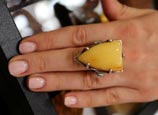
 |
| Illustration: Liu Rui/GT |
People living in the US now know we have been stalked by the authorities, thanks to a high school dropout who happened to have easy access to some highly classified national secrets.
The government has been quietly monitoring our phone records and Internet activities for years and only assured us after Edward Snowden's "tell-all fusillade" that the Americans shouldn't worry because the surveillance program only targets foreigners. As if anyone really believes that.
The disturbance Snowden's revelations have caused is understandable. Yes, law-abiding citizens have nothing to hide. But this is a country where numerous laws are passed and forgotten everyday. It is a rude awakening to suddenly realize that pictures on your Facebook page could one day expose you to charges if they were to show you, for example, scavenging in public dumpsters or putting your bag on a seat in the subway, both technically offences under New York laws but rarely enforced.
Still, that seems like a shiver too far for now. Currently, most people are shocked by NSA-gate, named after the National Security Agency which conducts the surveillance, because few people expected a country that has democracy and freedom as founding principles would secretly monitor the private activities of its citizens.
But that is a sign of how short memories can be. Surveillance and worse is not anything new in the US. During World War II, 110,000 ethnically Japanese people living in the US were locked up and put in internment camps, and 62 percent of them were US citizens. Some Japanese Americans went to hide in Chinatowns pretending they were Chinese. But many were still arrested in raids based on secret intelligence.
The same nightmare reoccurred in the 1950s when thousands of Americans who were suspected of being communists were monitored, interrogated or imprisoned. The secret files compiled by J. Edgar Hoover, the infamous then director of the Federal Bureau of Investigation, targeted in bone chilling detail everyone from actors to elected officials and street vendors.
Every time when people are knocked back on their heels by a terror attack, secret surveillance programs get increased public support even in a democratic country.
A recent poll released by Reuters on June 12 found 45 percent of those surveyed say the NSA surveillance program is acceptable under some circumstances. Similarly, a poll conducted by Gallup in 1954 found 50 percent of Americans supported Joe McCarthy, the US senator who led a witch hunt against alleged communists.
There is one thing that makes a huge difference between now and then: the new technology. iPads, smart phones, Facebook, Twitter and Google come into our lives and steal our hearts with their magic powers, demolishing boundaries and enchanting us because they promise to expand our freedoms. With unconditional trust, we embrace them passionately, and most of us never thought they could be a trap.
Two recent cases in New York can attest to this. During the peak of the Occupy Wall Street movement, New York police relied on the online chat of protesters to gather information on their plans and prepare before the activities took place. When the movement died down later, the chat records were used as evidence for prosecutors against some of the organizers and participants.
And when New York police officer Gilberto Valle was accused of plotting to kidnap, cook and eat women earlier this year, in an infamous "cannibal" case, it was the sickening messages he left in online chat rooms that led the jury to his conviction. His lawyer argued what he said online was pure fantasy. But these days, who can still clearly draw the line between virtual life and reality?
Some of these people may deserve what they got. But imagine Hoover was born in the same era as social media and the NSA's PRISM program.
But I don't want to leave you with that chilling thought. Let comedian David Letterman have the final word: "When the government violates your privacy, that's illegal surveillance. When you violate your own privacy, that's Facebook."
The author is a New York-based journalist. rong_xiaoqing@ hotmail.com
















 Shocking! Hairy stocking to beat sex harassment
Shocking! Hairy stocking to beat sex harassment


![]()
